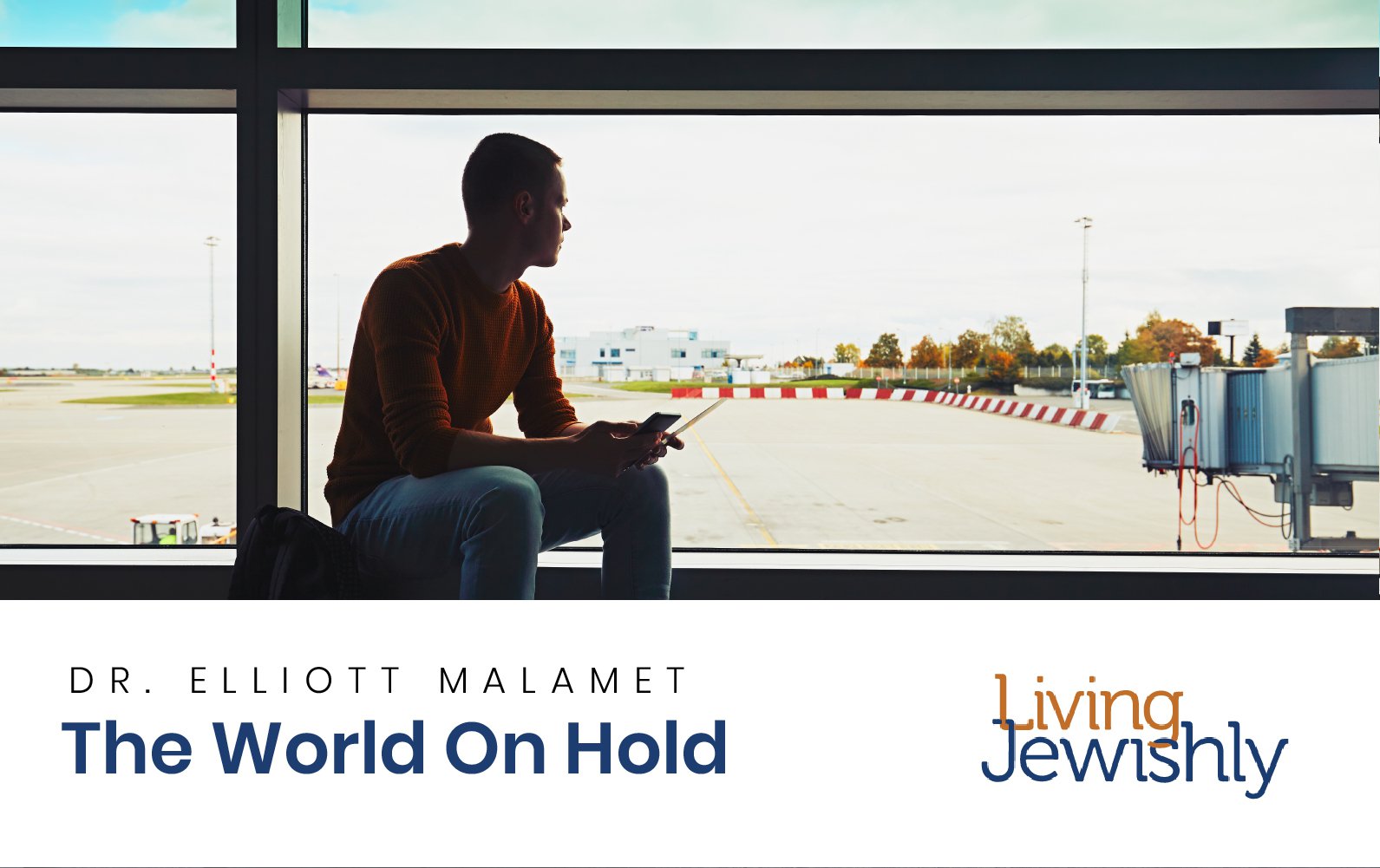Important questions wait for us when Jewish communities emerge from the deep freeze of Covid-19, and return to our houses of worship, our prayers and Torah study.
How will we relate as Jews to what has transpired? Will we return to the tired and true, and treat our “time off” as a temporary nuisance? Or as a period in our history with implications for the future of Jewish spirituality? If we decide to adapt the former perspective, this would mean that prayer services would remain exactly the same without the slightest alteration – the same prayers in the same sequence, same routine, same length, right down to the requisite sermons. But I hope there is another possibility.
We have the chance now to thoroughly assess who we are as a people, what we want out of our Judaism and, more crucially, to reconsider what truly constitutes “the service of God.” Modernity has forced us to confront serious transformations in the Jewish landscape in the form of assimilation and indifference. But we have frequently assumed a defensive posture: we must guard the door of tradition so young Jews don’t head for the exits. I empathize with this response, but maybe it is time for an update in the model. Instead of engaging Judaism with our backs against the wall, we may choose to enter into an intentional partnership with our religion. We may ask: what kind of Judaism do I dream of? For me, it is one that will spread love and justice within our nation and our world.
So, in the spirit of invention, I’d like to propose five suggestions for change in traditional synagogues of the post-corona world.
1) Reconsider our prayers, both in content and in form.
Perhaps drop certain prayers and substitute with new and more relevant liturgical pieces. An example in this regard can be taken from the present moment in the Jewish calendar. On Wednesday night July 29, Tisha B’av, Jews all over the world will sit on the floor and read the book of Eicha [Lamentations] mourning the destruction of the First Temple and the desolation of Jerusalem. But I look outside my window onto that very city, and see a metropolis teeming with passion and confidence, with monumental Jewish creativity and diverse representations of peoplehood.
As Rabbi David Hartman asks: “How much weight do we give reality in defining Jewish practice?” Rabbi Hartman has argued in essence that we need to put our halacha where our history is, that an “event of sweeping historical impact for the Jewish people” such as the birth of the modern State of Israel, should certainly alter the way we go about our Jewish practice in a deep way.
On Tisha B’av, we weep about the destruction of a city that is flourishing. We feign devastation at not being able to offer animal sacrifices as ancient Jews had done. As though a modern Jew’s true fantasy is to resurrect the past while waiting for the Messianic coming. Perhaps we should ask: do Jews still want what our Sages say we should want?
I can certainly appreciate the assertion that the world has not yet been redeemed. But it would also be unfortunate if neither historical events, nor the modern ethos of autonomy and equality, had any impact on how we live and pray as Jews today. When I read the words in the Shabbat and Yom Tov Mussaf prayers, faithfully transcribing the language of animal sacrifice, or for that matter, the blessing that men are supposed to make in the morning: “thank God for not making me a woman,” I find myself utterly alienated from my Siddur. These words frighten rather than uplift me, and I pray that we awaken to a new world, to prayer language and mitzvah practices that speak to our reality as moderns. I pray for a Judaism that is able to celebrate and embrace the humans who wish to observe it—women or men, straight or LGBTQ, people of all ethnicities. I pray that we have the courage to modify the liturgy and, in doing so, reflect a change in our attitude to one of inclusiveness towards all members of the Jewish community and the world.
2) Meditation for everyone.
Every service should make available the option of meditation in some way. Shuls are long overdue to join the mindfulness revolution, and encourage worshippers to cultivate a certain kind of stillness for a few moments at every service. Rabbis should communicate that this option is not a substitute for those who cannot stomach “real prayer’; rather it has the potential of heightening one’s prayers. Over time and a consistent meditative shul practice, the benefit of just sitting and breathing emerge, as will a new kind of prayer community.
3) Teach, don’t preach.
Instead of sermonizing, rabbinic figures should engage in meaningful dialogue with their congregants. Preaching is hierarchical. “The expert” up there will typically present a mixture of humour, a few Torah sources, and bits of topical news, to fashion an entertaining speech. It is a performance, and the people in the pews are consumers. This is Netflix Judaism; even if the listeners feel amused and diverted at the time, has their inner life progressed? Did they take away something would help them to actually do the vital soul-work? Rabbi Adin Steinsaltz once noted that part of the catalyst for boredom in modern American Judaism, is the passivity that is an entrenched component of the shul dynamic. As he puts it: “We cannot be bored when we are participating, when we are part of the creative.” I would say it a bit differently: we cannot grow emotionally when we sit back and consume the service as yet another commodity.
4) Make services shorter and quieter.
It is exceedingly bizarre when you consider it – is the service lengthy because we think God expects it, as though the length of our prayers somehow signals our seriousness? In my experience, most intense emotional and spiritual encounters are not a matter of time. It is the atmosphere that we provide to allow such moments to be fostered that is crucial. As I tell my congregants every year on Yom Kippur, what you are really looking for this morning are “5-10 good minutes.” By that I mean: centred; inner quiet; meaningful; curious; plugged in. The rest is filler.
5) Synagogues should invite speakers that differ from the shul’s point of view.
Orthodox shuls should have Reform rabbis speak from the pulpit and Haredi speakers should be invited to address Reconstructionist congregations. The notion that a person’s view upsets or is in conflict with our own, is not sufficient warrant to close our minds. As Timothy Leary said in the sixties: “Who knows what you might learn from taking a chance on conversation with a stranger? Everyone carries a piece of the puzzle. You’re only as young as the last time you changed your mind.”
The ability to re-envision our spiritual lives is the gift that has been given to us by a world on hold. What kind of Judaism do we want? This is the time to decide.
I’d love to hear about your post-corona wishes for Jewish change. Please write me at elliott@livingjewishly.org
Published with StoryChief


0 Comments